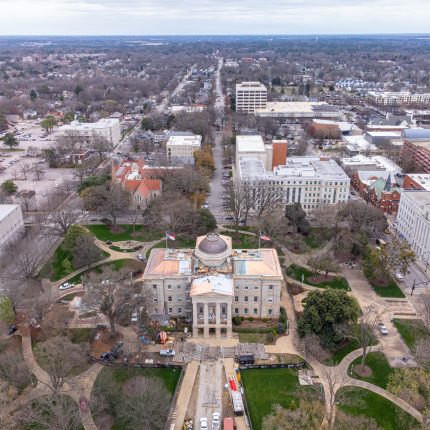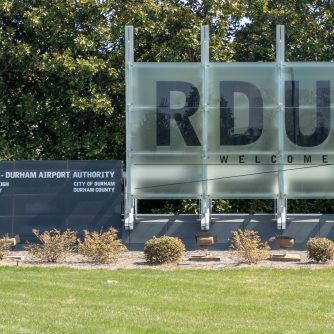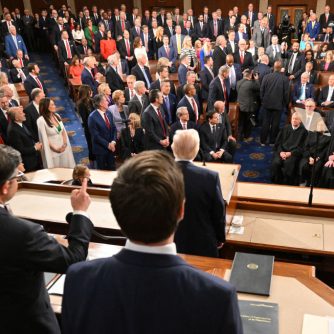On this episode of Carolina Newsmakers, Don Curtis speaks with John Hood, President of the John William Pope Foundation, about North Carolina’s fiscal health, the short session of the General Assembly, and the state’s political dynamics heading into the 2024 elections. Hood provides insightful commentary on budget surpluses, policy priorities, and the shifting electoral landscape.
Hood starts by discussing the General Assembly’s short session, which focuses on revising the state’s biennial budget. With an unexpected $1.4 billion surplus, lawmakers have significant flexibility to address immediate and long-term needs. Hood explains that much of the surplus will likely go toward one-time expenditures, such as repairs and renovations, rather than recurring expenses like across-the-board pay raises.
Governor Roy Cooper has proposed 8.5% raises for teachers and 5% for other state employees, as well as one-time bonuses ranging from $1,000 to $1,500. Hood anticipates that the Republican-led legislature will approve some compensation increases but not necessarily at the levels the governor has suggested. He notes that workforce retention challenges in high-stress jobs, such as corrections officers and certain teaching positions, will likely receive targeted attention.
The conversation then shifts to North Carolina’s mental health and infrastructure needs. Hood highlights past investments in water and sewer systems, as well as flood mitigation projects, emphasizing the importance of preventive measures. He also discusses the need for ongoing maintenance of state buildings and historic sites, pointing out that proactive repairs are more cost-effective than addressing catastrophic failures.
Hood underscores the value of the state’s Rainy Day Fund, which serves as a financial buffer during economic downturns. He praises North Carolina’s strong fiscal management, contrasting it with federal budgeting practices that lack statutory requirements for savings or repairs.
Turning to the political landscape, Hood provides insights into several key races, including the Republican primary runoffs for lieutenant governor and state auditor. He notes that turnout will be a critical factor in these low-profile races, where candidates’ regional support and name recognition often play decisive roles.
Hood also analyzes North Carolina’s 13th Congressional District race, a competitive Republican primary between Kelly Daughtry and Brad Knot. Both candidates have emphasized their conservative credentials, and Hood expects the outcome to hinge on voter turnout in key areas like Johnston and Wake counties.
At the national level, Hood examines the 2024 presidential race, discussing the implications of Donald Trump’s legal challenges and Joe Biden’s leadership amid economic and global uncertainties. He highlights voter dissatisfaction with both major-party candidates and the potential impact of third-party efforts like the No Labels movement.
As the episode concludes, Hood reflects on North Carolina’s overall political climate. He describes the state as a “purple” battleground, where Republicans dominate the legislature while Democrats often win executive offices like governor and attorney general. He predicts that ticket-splitting will continue to shape election outcomes, reflecting voters’ preference for checks and balances.





